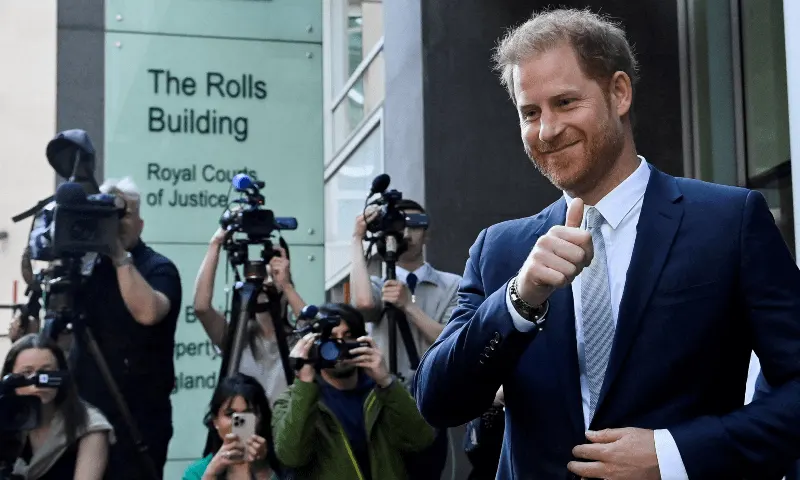Prince Harry scored the biggest win yet in his legal war against British tabloids on Friday when London’s High Court ruled he had been a victim of phone-hacking and other unlawful acts by Mirror Group journalists with the knowledge of their editors.
King Charles’ younger son, who became the first senior British royal for 130 years to give evidence in court when he appeared at a trial in June, was awarded 140,600 pounds (around $180,700) after the judge agreed he had been targeted by journalists working for Mirror Group Newspapers (MGN).
The judge’s conclusion that the editors of the Daily Mirror, Sunday Mirror and Sunday People and their executives knew about the wrongdoing vindicates Harry’s vociferous arguments that senior press figures had known about, and covered up, wrongdoing.
“Today is a great day for truth as well as account-ability,” Harry, who was not at court, said in a statement read by his lawyer David Sherborne.
“My commitment to seeing this case through is based on my belief in our need and collective right to a free and honest press, and one which is properly accountable when necessary. That is what we need in Britain and across the globe.”
The prince called for authorities to take action against those identified as having broken the law.
Since stepping down from royal duties in 2020 and moving to California with his US wife Meghan, the Duke of Sussex has made it his mission to rid the British press of those he accuses of being “criminals masquerading as journalists”, especially senior executives and editors.
The ruling said among the editors who knew about the “widespread” unlawful behaviour was high-profile broadcaster Piers Morgan, the Daily Mirror editor from 1996 to 2004, who has become a leading critic of Harry and Meghan. He has always denied any involvement in phone hacking.
Harry was one of about 100 claimants including actors, sports stars, celebrities and people who simply had a connection to high-profile figures who had sued MGN over claims of phone hacking and unlawful information-gathering between 1991 and 2011.
Judge Timothy Fancourt concluded 15 stories were the result of unlawful acts, and that Harry’s phone “was only hacked to a modest extent”.
In his excoriating judgment, Fancourt concluded there had been widespread hacking and unlawful activities at MGN from 1996 until 2011, even carrying on while a public inquiry into illicit practices at British newspapers was taking place.
In the judgment, Fancourt said there was “compel-ling evidence that the editors of each newspaper knew very well that (phone-hacking) was being used extensively and habitually and that they were happy to take the benefits of it”.
However, he said the board of the company, owned by Reach, had been kept in the dark by its former chief executive Sly Bailey and the group’s legal director.
He said they had concealed the unlawful behaviour not only from the other directors, but also parliament, a public inquiry into press standards between 2011 and 2012, shareholders and the public and the High Court at a previous trial in 2015.—AFP








